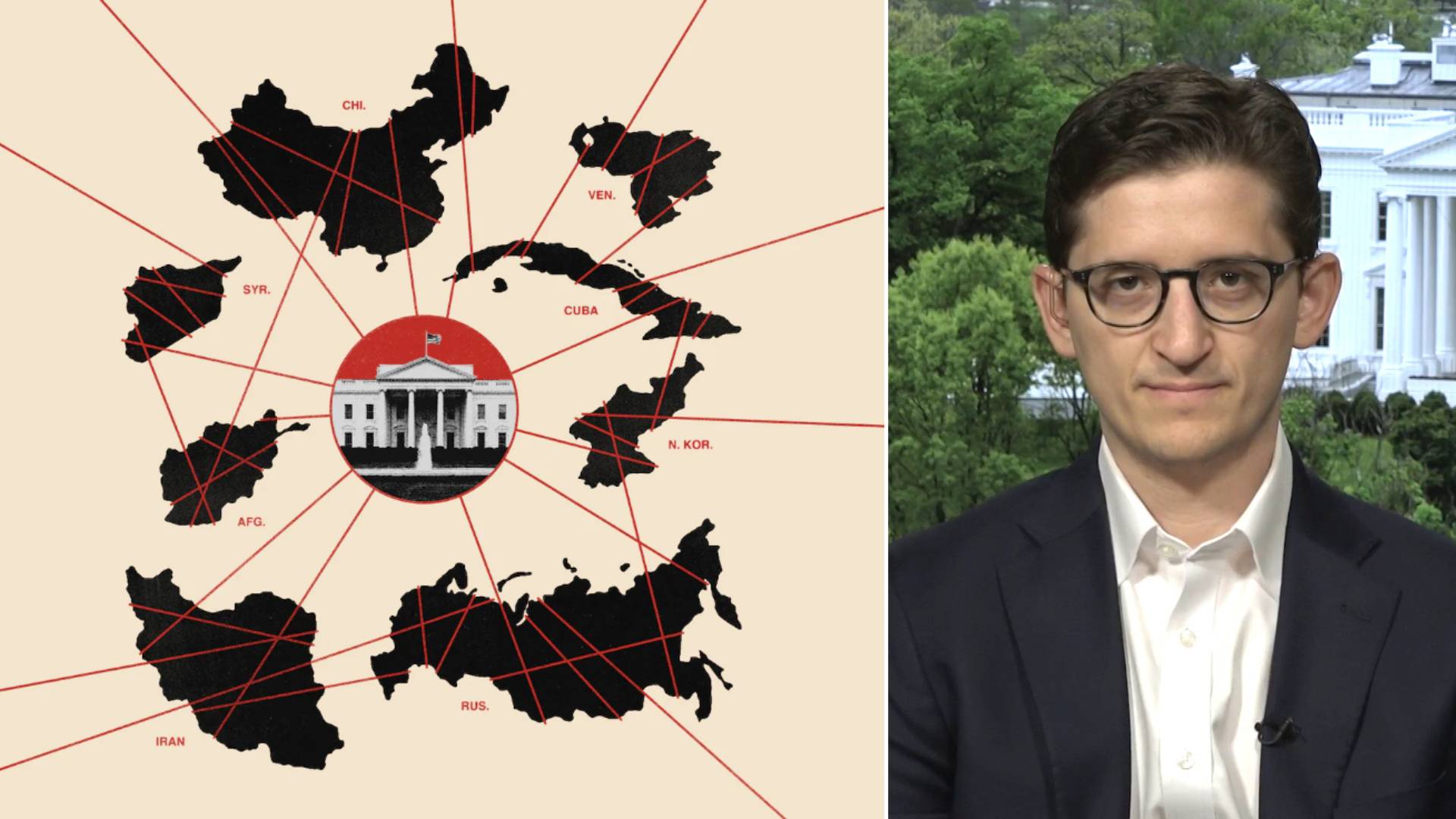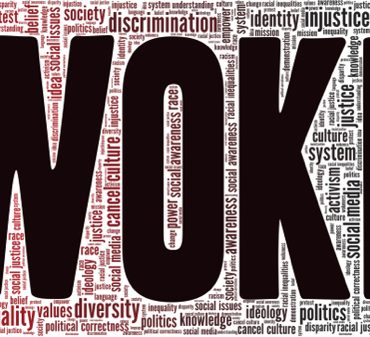This is a rush transcript. Copy may not be in its final form.
AMY GOODMAN: This is Democracy Now!, democracynow.org, The War and Peace Report. I’m Amy Goodman, with Nermeen Shaikh.
NERMEEN SHAIKH: We end today’s show looking at a major new Washington Post exposé titled “Money War: How Four U.S. Presidents Unleashed Economic Warfare Across the Globe.” The Post reporting examines how the U.S. has increasingly relied on economic sanctions that have left collateral damage across the globe.
The Post exposé begins, saying, quote, “Today, the United States imposes three times as many sanctions as any other country or international body, targeting a third of all nations with some kind of financial penalty on people, properties or organizations.”
AMY GOODMAN: But the collateral damage of the sanctions is seldom discussed. The Washington Post reports, in Venezuela, which just held a contested election, sanctions have “contributed to an economic contraction roughly three times as large as that caused by the Great Depression in the United States.” The Post also reports Donald Trump was warned sanctions on Venezuela could result in millions of people migrating from Venezuela.
We’re joined now by Jeff Stein, co-author of the Washington Post exposé and White House economics reporter for the Post.
Why don’t you take it from there, Jeff? In this five minutes that we have together, talk about making the Venezuelan economy scream. We’ll go from the effect of sanctions on Venezuela and then go to other countries.
JEFF STEIN: Yeah. So, starting under the Obama administration, the U.S. began imposing sanctions on Venezuela. But at first they were very limited. They were really just focused on a few members of the Maduro regime that were responsible for carrying out violent reprisals against protesters in Venezuela.
But, really, under Trump, and as we exclusively reported in this story, despite the warnings of DHS officials and classified reports about the potential outmigration effects of these sanctions, the Trump administration really choked off the main source of export revenue. Ninety-six percent of Venezuela’s export revenue comes from oil sales. And what the U.S. effectively did over the course of three to four years was to block those sales from occurring in international markets. And that really strangled the joint ventures that were sort of the lifeblood of the Venezuelan economy. This means sort of the oil deals that were worked out with U.S. producers with the Venezuelans that were providing them with the revenue that they needed to buy sort of imports from other countries.
And when that happened, you saw — the numbers are just staggering — 71% economic contraction in Venezuela, as you mentioned, three times as great as the U.S. Great Depression and greater than any other peacetime economic collapse recorded in modern history, greater than many other economic collapses of countries at war, including Ukraine after the Russian invasion or Iraq after the U.S. invasion in 2003. So this is a cataclysmic event.
And economists go back and forth, and it seems clear to me from my reporting that the economic collapse in Venezuela predates U.S. sanctions. You know, Venezuela had inflation of over 800% before Trump really tightened the screws on the Venezuelan economy. But there is also no doubt that these U.S. measures made the economic situation in Venezuela worse, and at the cost of — and despite that cost, did not push out Maduro’s government. And obviously, Maduro still remains in power today.
NERMEEN SHAIKH: So, can you say, Jeff — I mean, this is Venezuela’s case, but also elsewhere — how effective have U.S. economic sanctions been? I mean, there was a time, which you point out in the piece, with apartheid South Africa, sanctions helped bring down, end apartheid; also in Serbia, the demise of Milošević’s regime, also through sanctions or partially through sanctions. But what about now?
JEFF STEIN: Now I think it’s really hard to say. Academic attempts to sort of isolate the effects of sanctions and whether they have worked or not are very hard to quantify. Some studies I’ve seen suggest that the success rate is between 15 and 30%, which, given that we have sanctions now in some form on roughly a third of all nations and 60% of all poor countries, suggests a high failure rate.
We look in the piece at Cuba, Iran, Zimbabwe, Venezuela, Afghanistan, Syria. These are tens of millions, if not hundreds of millions, of people who are being affected in some form by U.S. sanctions, where the regimes that the U.S. are intending to target have not changed hands, have not surrendered their hold on power. And maybe, you know, the U.S. will say that these sanctions are still better than not having any measures, because they deprive these regimes of funds at their disposal that they can use for, you know, what the U.S. would say are pernicious activities, activities that the U.S. does not want to see. But at the same time, in terms of actually leading to changes of regime, we don’t really see that very much.
And many critics will argue that, in fact, sanctions actually embolden and empower the people in charge, these regimes in charge, because they curb civil society. They reduce the power and the clout of private sector actors that often form a rival power base to the sanctioned authority, these regimes in charge. And so, in case after case, we see very legitimate, it seems, criticisms of these sanctions regimes.
AMY GOODMAN: And what about Iran — to say the least, very much in the news today — the effect of the U.S. sanctions, and also how when the U.S. imposes sanctions, they also pressure other countries to do the same, of course, as we see in Cuba?
JEFF STEIN: Yeah. The Iran sanctions, really first imposed, in really dramatic effect, in 2010 through measures passed by the Obama administration and Congress, really amounted to a fascinating expansion of U.S. sanction authority. What we really saw, in a very significant way, the first deployment of secondary sanctions, which were to say we’re not just sanctioning the party that we don’t like here, but we’re also going to say, “If you engage in trade with the Iranian regime, we will target you.” And so, that, effectively, represented a major expansion of sanctioning power and really seemed to the advocates of sanctions to be a very effective approach, because, obviously, in 2015, the Obama administration worked with the Iranian regime on a nuclear deal that sanctions advocates hailed as the product of this pressure campaign.
That said, the U.S., under Trump, pulled out of that deal. And so, any people who say that the Iranian sanctions under Obama were successful have to contend with the fact that we abandoned, as a country, that deal quite quickly and left the Iranians in the lurch, and have since then seen the Iranians work with Russia, work with the Cubans, work with other powers that the U.S. is opposed to, on forming rival financial networks that leave open the question of whether there’s even a possibility of further Iran sanctions being effective now that they’ve formed all these rival sort of trading networks that operate sort of as a shadow trade system to what the U.S. — the sort of Western financial system that is the predicate for punishing Iran via sanctions.
NERMEEN SHAIKH: And, Jeff, very quickly — we have 30 seconds — what happened to the 2021 plan to overhaul the U.S. sanction system?
JEFF STEIN: Yeah. We exclusively report in our story that a group of Treasury staffers had a draft of a report far more extensive than what they ultimately released. They had dozens of recommendations, including measures really meant to check the rise of U.S. sanctions, particularly a sort of central coordinator. Right now it’s a little bureaucratic, but there are sort of many parts of the government that sort of throw out sanctions ideas that get rolled together in State Department and Treasury Department sanctions and push forward. And there’s really no one body that sort of is evaluating whether these sanctions are operating in the context of an overall broader sanction strategy. And Treasury staffers drew up a plan to say, like, “Let’s put that in place.”
But disagreements with the State Department, sort of the overall inertia of sanctions, where they seem so easy, so effective, they seem to the U.S. government much easier than going to war, much easier than doing nothing or much more politically palatable than doing nothing. And so, that plan was shelved. And, really, under the Biden administration, we’ve just seen more and more sanctions. Biden has imposed 6,000 sanctions in two years, an unprecedented sum. And the fact that has continued really reflects the inability of the U.S. to get this problem or to get this number down.
AMY GOODMAN: Jeff Stein, we thank you so much for being with us, reporter for The Washington Post. We’ll link to your piece, “How Four U.S. Presidents Unleashed Economic Warfare Across the Globe.” I’m Amy Goodman, with Nermeen Shaikh.











Post comments (0)